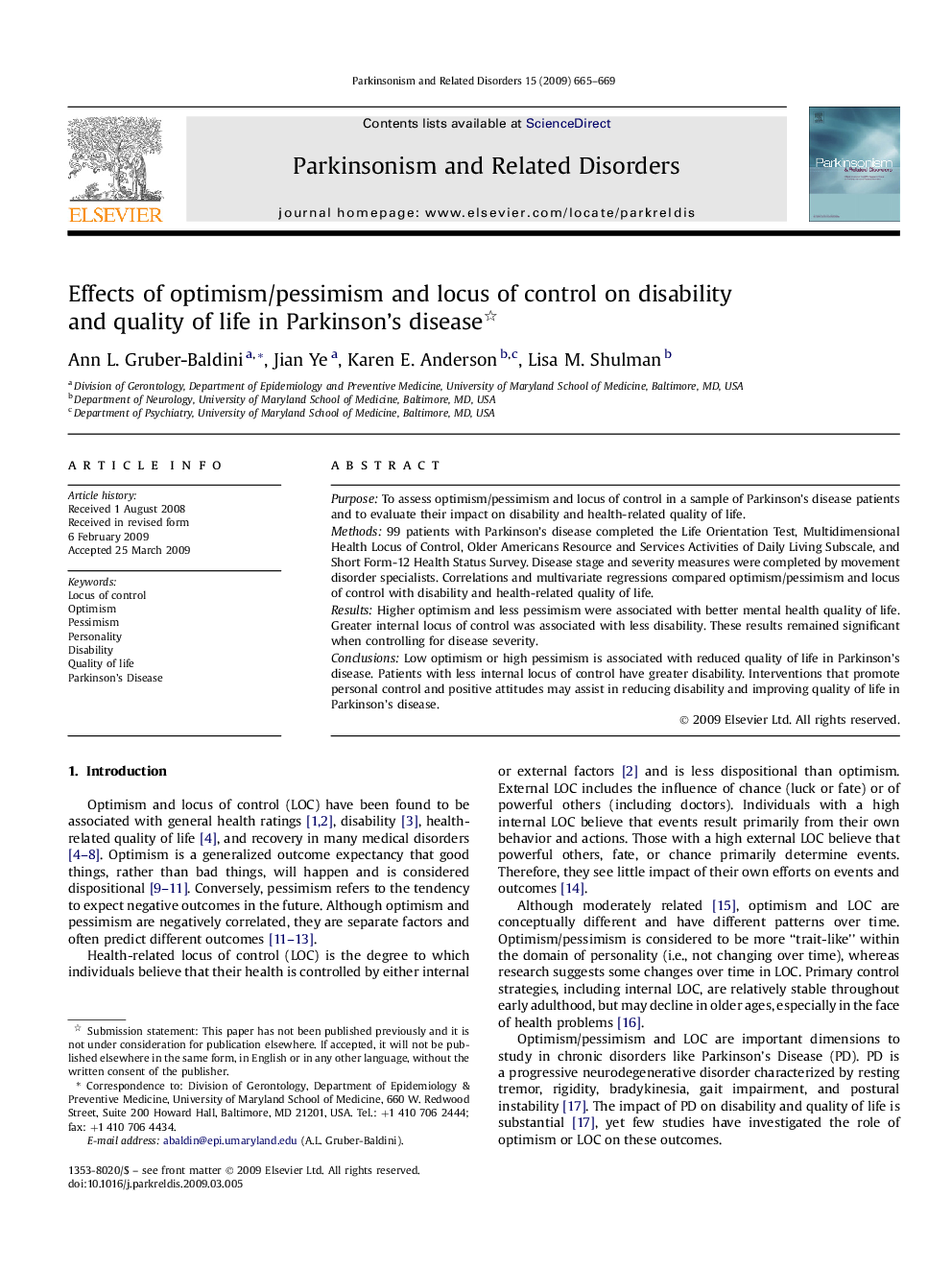| Article ID | Journal | Published Year | Pages | File Type |
|---|---|---|---|---|
| 1921090 | Parkinsonism & Related Disorders | 2009 | 5 Pages |
PurposeTo assess optimism/pessimism and locus of control in a sample of Parkinson's disease patients and to evaluate their impact on disability and health-related quality of life.Methods99 patients with Parkinson's disease completed the Life Orientation Test, Multidimensional Health Locus of Control, Older Americans Resource and Services Activities of Daily Living Subscale, and Short Form-12 Health Status Survey. Disease stage and severity measures were completed by movement disorder specialists. Correlations and multivariate regressions compared optimism/pessimism and locus of control with disability and health-related quality of life.ResultsHigher optimism and less pessimism were associated with better mental health quality of life. Greater internal locus of control was associated with less disability. These results remained significant when controlling for disease severity.ConclusionsLow optimism or high pessimism is associated with reduced quality of life in Parkinson's disease. Patients with less internal locus of control have greater disability. Interventions that promote personal control and positive attitudes may assist in reducing disability and improving quality of life in Parkinson's disease.
